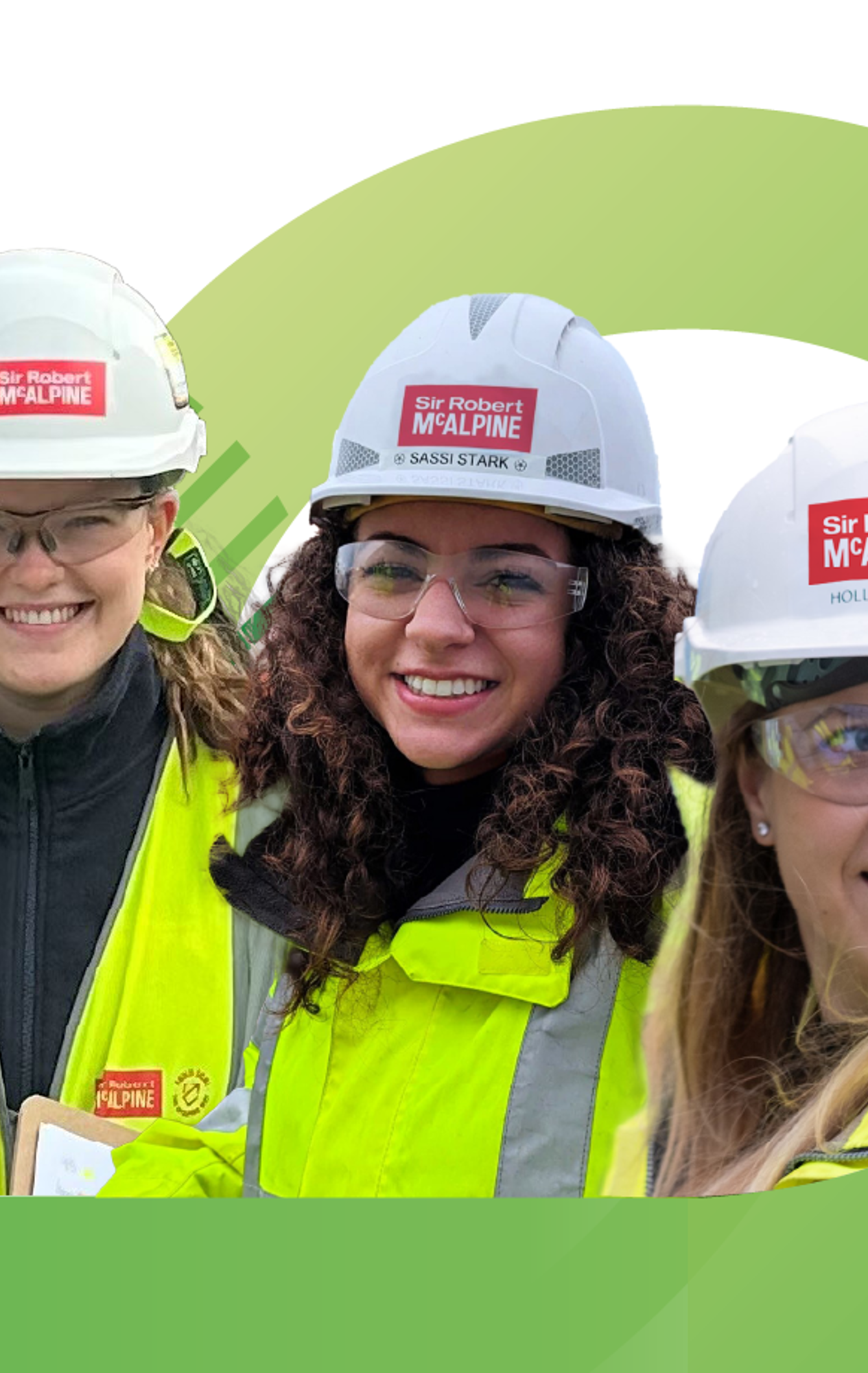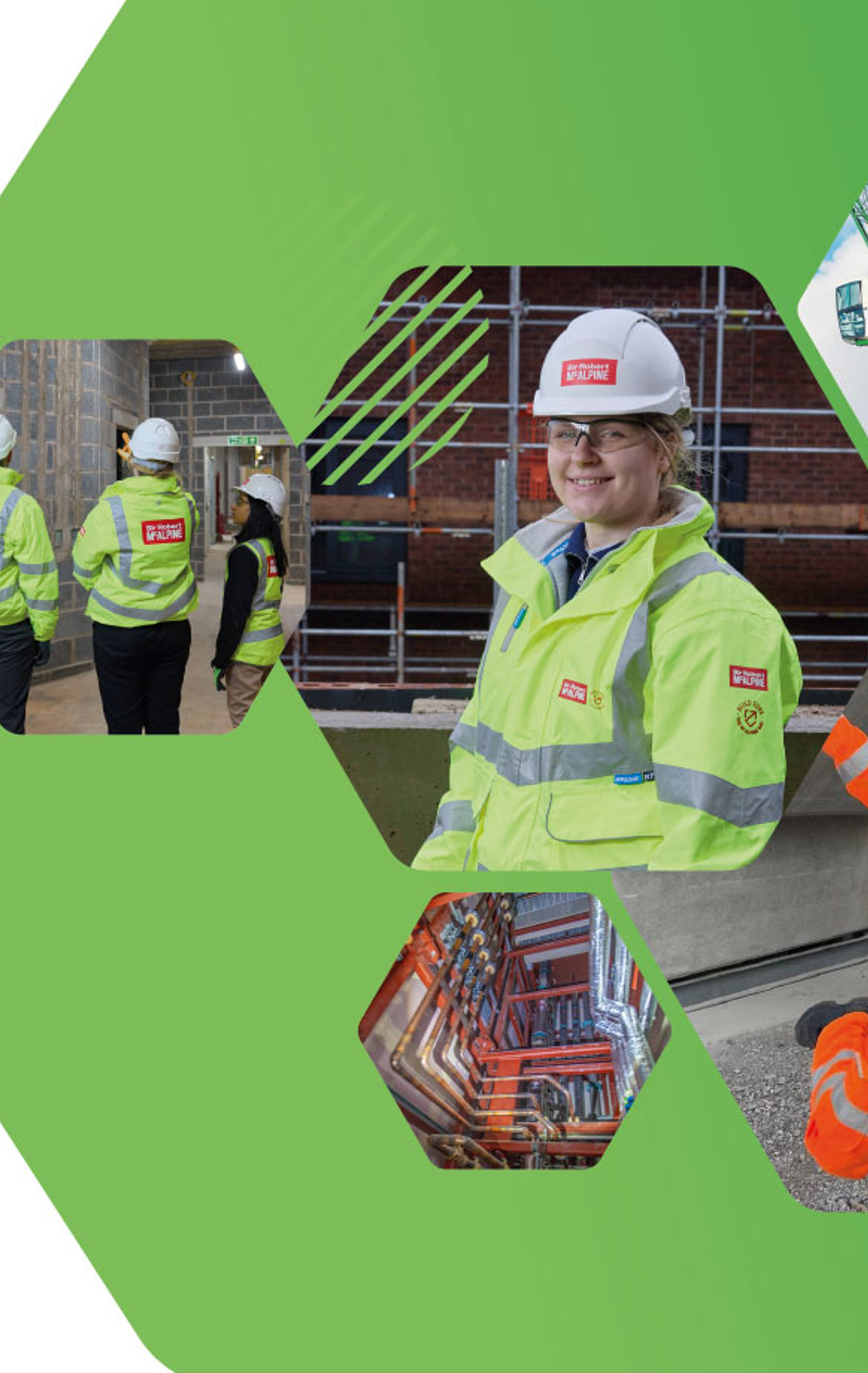
IWD with Kelly White
10 Mar 2025After joining the industry by accident, Kelly White, Head of Bidding, shares how she has developed a passion for construction and become a fervent advocate for equity through our Affinity Networks.
In challenging economic times, continuing to promote diversity and inclusion throughout a company is more important than ever, regardless of the industry in question. But what does diversity entail?
And this is not simply a ‘theory’. In fact, a recent report by McKinsey found that diversity not only improves workplace performance, but also stimulates innovation and even increases financial returns. For us, treating everyone equally is business critical. We recognise that it enables us to make better decisions, be more creative and support a rounded culture that is reflective of the world around us. Armed with such compelling evidence, it becomes ever more clear that diversity & inclusion really is the wellspring of success. Key to unlocking these benefits, however, is broadening our definition of what constitutes ‘diversity’.
Arguably, the current default is to think about diversity through a gender lens, while really the definition is, of course, far broader. True diversity should encompass both physical attributes as well as cognitive; considering abilities and skill sets, thought styles and cultural backgrounds to name just a few aspects. Opening up this definition can only allow for better solutions to be identified. At Sir Robert McAlpine, we are committed to tackling the problem by setting up initiatives to actively reach out to underrepresented groups. This includes, for example, the ex-convict community who have much to offer in terms of skill, but who might encounter additional barriers to seeking employment.
One of the ways we have approached this is through the creation of seven Affinity Networks (focusing respectively on Gender; Working Families; BAME; LGBT+; Age; Ability; and Social Mobility), which ensure everyone in the business has a voice. These networks connect individuals, but also enable them to review and address the specific needs that apply to their group. What’s more, it’s a communication channel that feeds directly into the shaping of the company’s wider diversity and inclusion policies and strategy. Whatever it may be, looking at a broad range of approaches will be essential to providing access and encouraging applications from yet untapped pools of talent.
As we look to restore ‘business as usual’ across the industry, it’s important to remember that it will be diversity of thought, experience and perspective from the widest possible cross-section of society that will allow us to secure the future of business competition and success.
After joining the industry by accident, Kelly White, Head of Bidding, shares how she has developed a passion for construction and become a fervent advocate for equity through our Affinity Networks.
As we celebrate National Inclusion Week 2024, we share stories from women in construction, reflecting our commitment to creating an inclusive workplace.
In celebration of International Women in Engineering Day this week, we proudly recognise the exceptional contributions of our female engineers who help drive our projects forward.
Our use of Cross Laminated Timber (CLT) in the conversion of the two former market buildings in Smithfield into the new London Museum provides an excellent example of sustainable engineering excellence.
Congratulations to Rachael Smith, our Head of HR – Strategy & Transformation, who was named Role Model of the Year at the British Forces in Business Awards 2025.
During Armed Forces Week, we speak to Katy Maloney to understand how our commitment to the Forces community provides essential support for military families.




